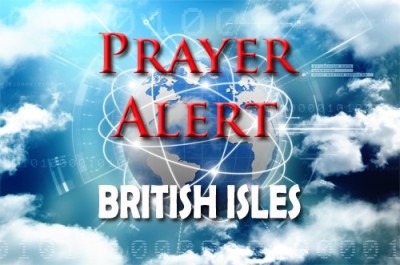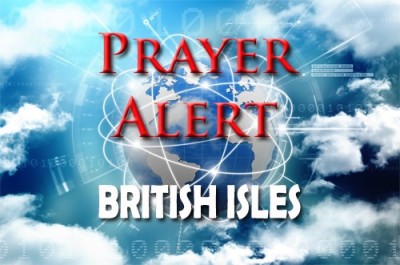There are allegations of extensive official censorship on coverage of Pakistan Tehreek-e-Insaf (PTI) ahead of the country's elections on 8 February. PTI, founded by former prime minister Imran Khan, is considered one of the most popular political parties in Pakistan. However, he has been imprisoned since August 2023, facing corruption and state secrets leakage charges which he claims are politically motivated. Censorship against PTI has increased since Khan lost a confidence vote in April 2022, leading to his resignation. The election commission has rejected nomination papers for Khan and other PTI leaders and stripped the party of its election symbol (a cricket bat), forcing many candidates to run as independents. Several journalists have admitted receiving official instructions not to use party symbols or identify candidates as PTI members. though the government has denied these claims. Media censorship has grown since May 2023, when PTI supporters protested against Khan's arrest. Government officials recently said that unrestricted internet access during elections cannot be guaranteed, citing technical issues.
On 24 January, supporters of the main opposition party, Chadema, staged a peaceful march in Dar-es-Salaam - the first such occasion in seven years. A ban on political gatherings and protests was imposed by former president John Magufuli in 2015 but lifted by Samia Suluhu Hassan in 2021. Under heavy police protection, the demonstrators marched peacefully through the streets, waving placards and blowing whistles. They are calling for constitutional amendments to allow presidential election results to be challenged in court and to prevent the president from selecting electoral commission members. The opposition party also highlighted concerns about the high cost of living in Tanzania. Chadema's chairman, Freeman Mbowe, urged the withdrawal of proposed electoral law amendments from parliament until public opinions are incorporated. Unlike the previous era under Magufuli, this demonstration was not disrupted by the police, indicating a shift in the government's approach to political dissent. During his tenure, opposition gatherings were often violently suppressed, and leaders faced arrests and attacks, which they deemed politically motivated.
In Melbourne, early on 26 January (Australia Day), a century-old statue of Captain James Cook was cut down and a Queen Victoria monument vandalised with red paint. Australia Day commemorates the anniversary of Britain's first fleet landing in 1788, marking the start of the colonial era. The Cook statue, which commemorates his 1768-1771 voyage charting Australia's east coast, has a history of being targeted on or around Australia Day. The vandals left the message 'The colony will fall' on its base. Victoria premier Jacinta Allan condemned the vandalism, stating it had no place in the community, and efforts would be made to repair and reinstate the statue and clean the Queen Victoria memorial. While polls indicate that approximately 60% of people support celebrating Australia Day, many view it as inappropriate due to its association with the displacement of Aboriginal and Torres Strait Islander lands and cultures. Protests against 'Invasion Day' have grown, and some people boycott the holiday.
Ghana: ‘crown jewels’ to be loaned by UK
25 Jan 2024The UK is sending 32 significant artefacts, including a gold peace pipe, to Ghana on long-term loan, 150 years after they were looted from the Asante king's court. 17 pieces are from the Victoria and Albert Museum (V&A), and 15 from the British Museum. The move aims to foster cultural cooperation after years of tension. Some UK museums are legally prohibited from permanently returning contested items, making loans a compromise for repatriation. However, there is a concern that loans imply acceptance of UK ownership. Tristram Hunt, V&A's director, likened the gold court regalia to the UK's Crown Jewels and stressed the importance of fair sharing. The three-year loan agreements, extendable for another three, are with Otumfo Osei Tutu II, the current Asante king, rather than the Ghanaian government. The artefacts will be displayed at his palace in Kumasi, the Asante region's capital, to celebrate his silver jubilee. These gold items are the ultimate symbol of the royal government and are believed to be invested with the spirits of former Asante kings.
Angus Cameron, a Christian street preacher in Glasgow, Scotland, has won a substantial settlement after being wrongfully arrested for alleged 'homophobic language' in January 2022. Police Scotland agreed to pay over £5,500 and £9,400 in legal fees, following a legal challenge by the Christian Institute, which represented Cameron. The incident began when Cameron was stopped by police, searched, handcuffed, and accused of a 'breach of the peace with homophobic aggravation’, a claim he firmly denied. Despite being released after an hour, a 'non-crime hate incident report' was filed against him, later leading to legal action for wrongful arrest, discrimination, and human rights breach. The Christian Institute revealed that the arrest lacked just cause, emphasising Cameron's peaceful preaching without targeting individuals or using offensive language. As a result, Police Scotland settled the case out-of-court, paying damages and legal costs, and removed the report from their records. This case highlights ongoing concerns about the rights of evangelical Christians to express religious views in Glasgow, referencing a similar case in 2022 involving Franklin Graham.
Wrestling legend Hulk Hogan, known for his recent baptism and embracing Christianity, heroically rescued a 17-year-old girl from a car accident in Tampa. Hogan, with a friend, witnessed the crash and immediately helped the teenager trapped in the flipped vehicle. His wife Sky recounted on Facebook how they punctured the car's airbag to free the girl. Hogan confirmed the girl was unharmed but shaken, describing the rescue as 'an absolute miracle.' He also shared on Twitter how he resourcefully used an Indian Rocks Christian ballpoint pen to puncture the airbag, thanking God for the positive outcome.
Rishi Sunak's Rwanda bill, aimed at preventing legal challenges to the UK's plan to send asylum seekers to Rwanda, has passed the House of Commons with 320 votes in favour and 276 against. Despite initial concerns from some Conservative MPs, only 11 voted against the bill. The legislation now faces opposition in the House of Lords. Sunak's government argues that this policy will deter migrants from illegally crossing the Channel into the UK. However, Labour criticises it as an ineffective and costly 'gimmick’. The plan has sparked divisions within the Conservative Party, with MPs like Robert Jenrick proposing amendments to bypass parts of human rights law, which were ultimately not adopted. Home secretary James Cleverly defended the bill as a clear message against illegal entry into the UK. The bill's passage in the Commons is a temporary victory for Sunak, but more challenges await in the House of Lords.
Amid freezing temperatures, criminal gangs have been condemned for their reckless actions in transporting around 200 migrants across the English Channel in dangerously cold conditions. The gangs have been criticised for their complete disregard for the safety of the migrants, using flimsy boats in treacherous weather, risking fatal outcomes. This risky crossing follows the recent tragic loss of five lives. The GB News' security editor highlighted how these gangs reduce the number of people per boat in bad weather, emphasising the perilous nature of these journeys. An investigation into 'aggravated manslaughter' has been launched following the recent capsising incident, underscoring the life-threatening risks involved. The Prime Minister's Rwanda bill, aimed at addressing this crisis, was passed by the House of Commons despite strong opposition and concerns over its compatibility with international law.







